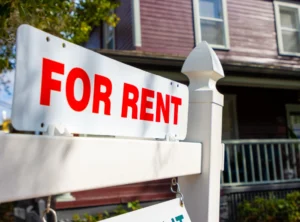
Defining Squatters’ Rights vs Tenants’ Rights: Key Differences and Legal Protections
Ever wondered about the difference between squatters and tenants? The complex world of property rights can make you question the legal status of these two occupants. These are two individuals who reside on a property, but their legal standings differ hugely.
Therefore, the article will shed some light on what rights each group has, how they’re protected by the law, and what happens when everything goes wrong.
If you’re dealing with property issues, it’s good you know about these details, especially if you’re planning upgrades like installing mini-split systems to improve your property appeal.
Defining Squatters’ Rights vs Tenants’ Rights
Whether you’re a property owner, tenant, or simply interested in property law it’s good you understand these distinctions between squatters’ rights and tenants’ rights. This way you can be able to navigate this often complicated landscape of occupancy rights.
What are Squatters’ Rights
A squatter to start with, is someone who moves into an empty property without the permission of the owner. Even with no permission, these squatters have rights—legal allowances that may be granted to them after occupying a property without the owners’ permission. This idea comes from way back in history when the government wanted to encourage people to productively use abandoned land or neglected properties.
Understanding Tenants’ Rights
On the other hand, tenants are occupants who have permission to live in a property. They have tenant rights—the legal protections offered to them after they have entered into a formal agreement to occupy a property in exchange for rent.
Key Differences Between Squatters and Tenants
 The big difference between squatters and tenants lies in the legality of their occupancy.
The big difference between squatters and tenants lies in the legality of their occupancy.
Tenants have a legal right to occupy a property because of a written agreement with the landlord. They pay rent as agreed in the lease agreement which also outlines their rights and by landlord-tenant laws.
As for squatters, they don’t have this initial right as their stay in a given property is without permission. They do not pay rent as their stay is not officially recognized until they meet certain legal requirements.
Squatters’ and Tenants’ Legal Protections
How does the law protect these two groups?
Tenants
Tenants enjoy a lot of protection that ensures fair treatment and maintains the balance of power between the landlords and renters. This includes:
Rent Control and Regulations: There are laws about how much rent landlords can increase for tenants and the safety of the property.
Eviction Notice and Procedures: There’s a law on how landlords can evict tenants. This includes providing proper notice and, in many cases, going through the court systems.
Tenant Privacy and Property Maintenance: There’s a law about how much privacy a tenant should have, which includes when and how the landlord can enter the property. They are also required to keep the property in good condition at all times.
Squatters
Adverse Possession Laws: These laws allow the squatters to claim property ownership after living there for a long time, mostly years.
Requirements for Squatters Claim: To claim ownership, squatters must meet certain legal conditions. They must show continuous, open, and hostile (without permission) use of the property.
Limitations and Legal Challenges: Squatter rights exist primarily to protect property owners. Some laws require squatters to pay taxes for the property or make improvements to the property to strengthen their claim. Property owners can take legal action to remove squatters before they can establish a valid claim.
Tenants and Squatters Eviction Process
 There are big differences in the eviction process for squatters and tenants which lies in their distinct legal status. It’s important to understand this as a property owner or an occupant alike.
There are big differences in the eviction process for squatters and tenants which lies in their distinct legal status. It’s important to understand this as a property owner or an occupant alike.
Removing Squatters
The process of removing squatters can be complex and time-consuming. As a property owner here are some legal procedures you must follow.
- Gathering evidence of ownership and squatter occupation
- Providing written notice to vacate the property.
- Filing an unlawful detainer lawsuit if the squatters refuse to leave.
- Obtaining a court order for eviction.
- Working with law enforcement to remove the squatters if they still refuse to vacate.
It’s important to note that self-help evictions, such as changing locks or shutting off utilities, are generally illegal and can result in legal consequences for you as a property owner.
Evicting Tenants
It can be as hard to evict tenants as a landlord. It involves a more structured process due to the legal protections afforded to them. The general steps include;
- Providing proper notice as required by local laws (e.g., 30-day notice for month-to-month tenancies).
- Filing an eviction lawsuit if the tenant doesn’t vacate.
- Attending a court hearing where both parties can present their case.
- Obtaining a judgment for possession if the court rules in the landlord’s favor.
- Working with law enforcement to remove the tenant if they don’t leave voluntarily.
Landlord Responsibilities vs. Squatter Claims
Let’s wrap up by talking about what landlords need to do and how that compares to what squatters might claim.
Landlord’s Responsibilities
As a landlord, there are specific responsibilities when it comes to property maintenance and repairs.
- Ensure the property meets all health and safety standards
- Maintain structural elements of the building
- Provide functional plumbing, electrical, and heating systems
- Address pest infestations
- Make repairs on time when notified of issues
Tenant Privacy Rights
You must respect your tenants’ right to privacy. This includes;
- Provide advance notice before entering the property (except in emergencies)
- Limit entries to reasonable times and purposes
- Respect tenants’ personal property and space
Squatters’ Rights to Property Upkeep
Squatters’ claims to property maintenance are generally limited. However, they might claim they have a right to stay if they’ve been maintaining the property. This might include:
- Repairing structural issues
- Maintaining the landscape
- Paying property taxes
Conclusion
There you have it—the distinctions between squatters’ and tenants’ rights. It’s important to understand these differences whether you’re a property owner or occupant.
As a tenant, you can enjoy a wide range of legal protections based on your contractual agreement with landlords. As for squatters, your rights are more limited and often contested.
Similarly, property owners should also be aware of their responsibilities and the potential risks associated with both the squatters and tenants.













 Accessibility
Accessibility